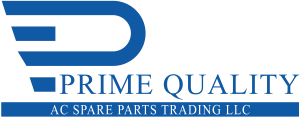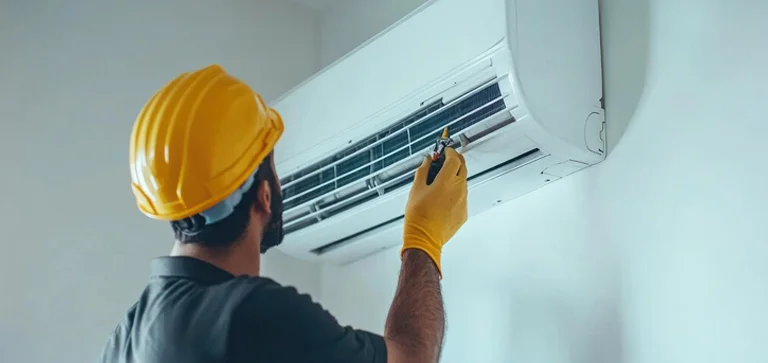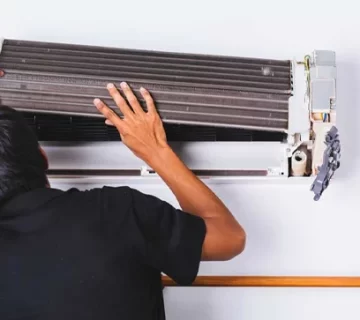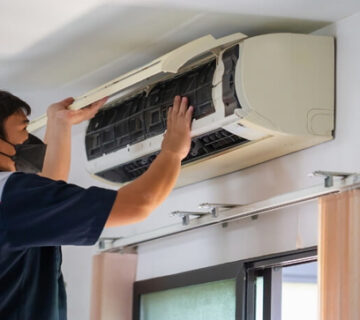Understanding and diagnosing common AC cooling problems is essential for maintaining a comfortable indoor environment and ensuring the efficient operation of your air conditioning system. Air conditioners are complex systems that can experience a range of issues affecting their cooling performance. Identifying these problems early can prevent further damage and costly repairs.
Common AC cooling problems can manifest in various ways, from inadequate cooling and uneven temperatures to unusual noises and water leaks. These issues can arise due to a range of factors, including dirty air filters, refrigerant leaks, malfunctioning components, and improper system settings. Recognizing the common reasons AC is not cooling effectively allows you to take appropriate action and restore your system to optimal performance.
This guide will help you identify and understand these common issues, providing you with the knowledge to troubleshoot problems and ensure your air conditioning system operates efficiently. By addressing these cooling problems promptly, you can maintain a comfortable and cool indoor environment, extend the lifespan of your AC unit, and avoid unnecessary repair costs.
Here are common AC cooling problems and how to identify them.
1. Insufficient cooling:
There may be a number of reasons why your air conditioner isn’t efficiently cooling your room. AC cooling problems can arise from several factors. First, verify that the AC air filter is clean. A blocked filter can restrict airflow, leading to reduced cooling efficiency. Additionally, ensure that the thermostat is properly adjusted, as incorrect settings might hinder performance.
Another potential issue is low refrigerant levels, which directly impact the cooling capability of your unit. If the refrigerant is low, your air conditioner might struggle to cool the room effectively. Should the problem persist, it could be due to a malfunctioning compressor or issues with the evaporator coil. Both components are crucial for the proper operation of your AC, and any faults here might result in common air conditioning common problems like inadequate cooling.
2.Warm Air Blowing:
Blowing warm air from your air conditioner is frequently a sign of air conditioning common problems within the system. First, ensure that the thermostat is set correctly, in cooling mode, and that the temperature is appropriately regulated. If the thermostat settings are accurate and the problem persists, examine the AC air filter for any obstructions. Dirty filters can significantly impact airflow and cooling efficiency, leading to warm air blowing instead of cold air. Another potential cause could be a failing compressor or a refrigerant leak, both of which can disrupt the cooling process. If these issues are suspected, it may be necessary to hire a professional inspector to diagnose and address the problem, ensuring your air conditioning system returns to optimal performance.
3. Inequitable cooling:
There are several reasons why some rooms may not be as chilly as others when it comes to uneven cooling. Uneven temperatures might result from inconsistent airflow caused by blocked vents or other impediments. Verify that the vents are clear and open. Additionally, look for any ducting problems, such as leaks or obstructions. A malfunctioning air conditioner might also be a contributing problem since it might not be able to cool the entire room. These problems are assessable and fixable by an HVAC specialist.
4. Strange Noises:
Your air conditioner may be making unusual noises, which could be a sign of underlying issues. Squealing, slamming, and rattling are examples of common noises. Sounds that rattle could indicate broken components or debris inside the appliance. Problems with the fan or a malfunctioning compressor could be the cause of the loud noises. A motor bearing or a worn-out belt could be the cause of squealing sounds. Early detection and correction of these disturbances can stop more damage and guarantee smooth functioning.
5. Frequent cycling:
Regular cycling, or the AC turning on and off quickly, can indicate a number of problems. A thermostat that is not calibrated correctly is one typical cause of brief cycling. An additional option is an unclean or obstructed air filter, which impedes airflow and leads to excessive system strain. Frequent cycling might also be brought on by an oversized air conditioner or low refrigerant level. To fix the problem, check the refrigerant levels, thermostat settings, and filter.
6. Water leaks:
Water leaks around your air conditioning unit may result from several factors. One of the common reasons AC is not cooling efficiently is a blocked condensate drain line. This obstruction prevents proper drainage of condensation, leading to water leaks. To resolve this, inspect the drain line for any blockages and clear them if necessary.
Another potential cause is a broken pump, which can fail to remove the condensed water from the unit. Additionally, issues with the evaporator coil, such as ice formation or a malfunction, might also lead to leaks and impact the cooling efficiency of your AC.
Addressing water leaks promptly is crucial to preventing mold growth and water damage, which can lead to more significant problems in the long run. Ensuring that these issues are fixed not only resolves the leaks but also improves overall cooling performance, reducing AC cooling problems and ensuring the unit functions efficiently.
7. Increased Energy Bills:
A problem with your air conditioning system could be indicated by a sudden spike in your energy expenditures. Frequently occurring reasons include unclean air filters, which make the system work harder, or inefficient performance as a result of a broken part. Refrigerant leaks and old equipment can also cause efficiency to decline and energy usage to rise. Reducing energy expenses and increasing efficiency can be achieved with timely repairs and routine maintenance.
8. Foul odors:
Bad smells emanating from your air conditioning equipment could indicate a number of issues. Musty odors could be a sign of mold or mildew growing around the evaporator coil or in the ducting. Burnt smells may indicate electrical problems or overheating parts. Determine the cause of the smell and take immediate action. These problems can be resolved by cleaning or replacing the air filter and making an appointment for an expert examination.
9. Varying Temperature Readings:
It may be detrimental to the operation of your air conditioner if your thermostat shows erratic readings or does not correspond to the real room temperature. Look for problems with the positioning or calibration of the thermostat. Its accuracy may be impacted; therefore, make sure it is not exposed to heat sources or direct sunlight. If required, adjust the thermostat or replace it. Having an accurate thermostat is essential for sustaining a suitable interior temperature.
10. The AC unit is not turning on:
First, check the power supply and circuit breakers if your air conditioner isn’t working. Make sure the unit is connected correctly and that there are no tripping breakers. Make sure the thermostat is properly adjusted for cooling by checking its settings as well. The compressor or other internal parts could be the problem if the power supply and thermostat are operating as they should. To solve this problem, professional inspection and repair could be necessary.
Conclusion
Understanding and addressing AC cooling problems is crucial for maintaining the efficiency and comfort of your air conditioning system. Identifying and resolving common AC cooling problems can prevent further issues and extend the life of your unit. By recognizing common reasons AC is not cooling effectively such as clogged AC air filters, refrigerant leaks, or malfunctioning components you can take prompt action to restore optimal performance.
Regular maintenance, including checking and replacing the AC air filter and using the right air conditioning tools, plays a significant role in preventing these issues. Additionally, having access to essential AC spare parts ensures that you can quickly address and fix any problems that arise. By being proactive and informed about air conditioning common problems, you can avoid costly repairs and ensure your system runs smoothly.
In summary, regular inspections and timely interventions, combined with the right tools and parts, are key to effectively managing and resolving AC cooling problems. This approach will help keep your air conditioning system functioning efficiently and maintain a comfortable indoor environment year-round.



